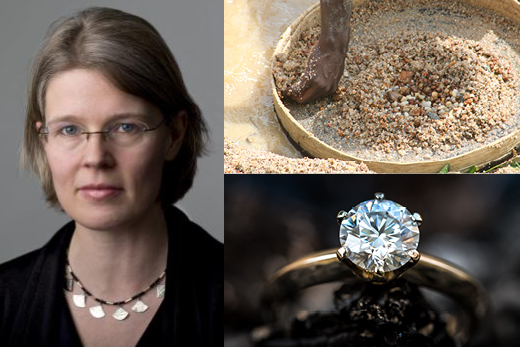Podcast: Human Rights, Diamonds and Covid-19
 RAPAPORT... The diamond and jewelry industry has made important strides in its responsible sourcing practices, but it cannot become complacent, a recent report by Human Rights Watch (HRW) found. Besides, Covid-19 has brought new challenges that affect all levels of the distribution chain.In episode 37 of the Rapaport Diamond Podcast, Juliane Kippenberg, associate director of the Children's Rights Division at HRW and co-author of the report, explains its findings and the implications for the trade.The report can be found at the following link: Sparkling Jewels, Opaque Supply Chains: Jewelry Companies, Changing Sourcing Practices, and Covid-19. Listen to the podcast below:Show notes01:34 - Juliane discusses what prompted HRW to pursue the report about the jewelry industry and children's rights relating to the industry.08:25 - How the pandemic has impacted the industry's responsible-sourcing practices.12:25 - Challenges involved in monitoring human-rights violations have increased during the pandemic.15:25 - Improvements made over the past two years.21:32 - The role of the miners in enabling full traceability.22:55 - Mine of origin versus country of origin.25:02 - Is the traceability requirement creating a segmented market that excludes important sectors such as artisanal and small-scale miners? 29:05 - Are independent jewelers and dealers being left out?32:44 - HRW's role in advancing responsible sourcing in the diamond and jewelry industry following the report.Image: Juliane Kippenberg (left), artisanal diamond mining in Sierra Leone (top right), diamond engagement ring. (Human Rights Watch, Rapaport News, Shutterstock)
RAPAPORT... The diamond and jewelry industry has made important strides in its responsible sourcing practices, but it cannot become complacent, a recent report by Human Rights Watch (HRW) found. Besides, Covid-19 has brought new challenges that affect all levels of the distribution chain.In episode 37 of the Rapaport Diamond Podcast, Juliane Kippenberg, associate director of the Children's Rights Division at HRW and co-author of the report, explains its findings and the implications for the trade.The report can be found at the following link: Sparkling Jewels, Opaque Supply Chains: Jewelry Companies, Changing Sourcing Practices, and Covid-19. Listen to the podcast below:Show notes01:34 - Juliane discusses what prompted HRW to pursue the report about the jewelry industry and children's rights relating to the industry.08:25 - How the pandemic has impacted the industry's responsible-sourcing practices.12:25 - Challenges involved in monitoring human-rights violations have increased during the pandemic.15:25 - Improvements made over the past two years.21:32 - The role of the miners in enabling full traceability.22:55 - Mine of origin versus country of origin.25:02 - Is the traceability requirement creating a segmented market that excludes important sectors such as artisanal and small-scale miners? 29:05 - Are independent jewelers and dealers being left out?32:44 - HRW's role in advancing responsible sourcing in the diamond and jewelry industry following the report.Image: Juliane Kippenberg (left), artisanal diamond mining in Sierra Leone (top right), diamond engagement ring. (Human Rights Watch, Rapaport News, Shutterstock)